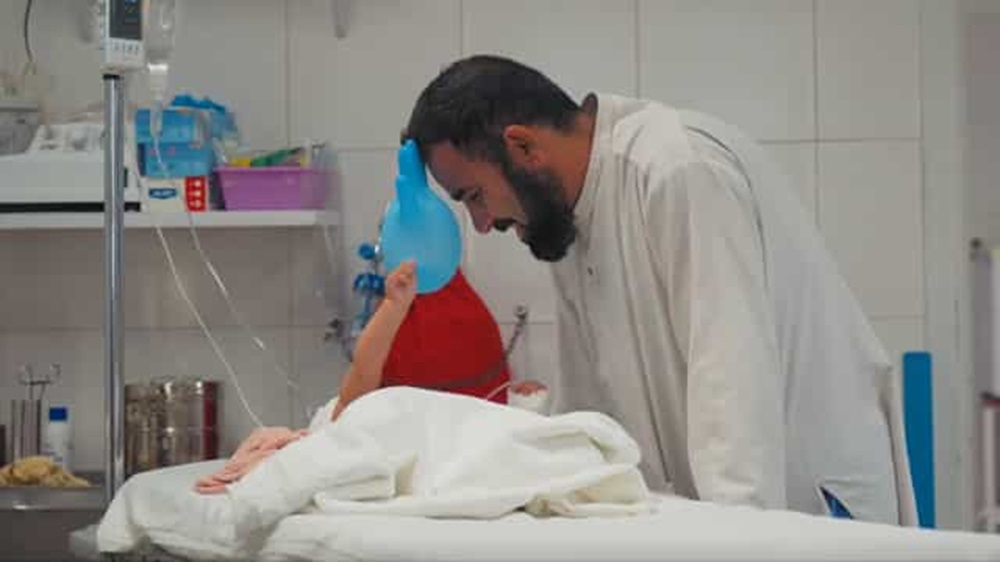Lynzy Billing: the 'long nights' of hospitals in Afghanistan
The British journalist of Afghan-Pakistani origin in a documentary recounts the work of the Italian NGO Emergency, which since 1999 has accompanied the many dramatic pages of life in the country with its assistance to the wounded and sick. “After the bombs, today the problem of domestic and family violence emerges more and more.” Filippo Bongiovanni, anesthesiologist-reanimator: “Disproportion between care needs and available resources.”
Rome (AsiaNews) - The Afghan “long nights” of Emergency - the Italian NGO that offers free medical care to victims of armed conflicts - started in 1999 from Anabah, Panjshir province, and then reached Kabul and Lashkar-Gah, among surgical and maternity centers, a first aid network, and prisons.
Twenty-five years without interruption, punctuated by explosions, mass-casualties - the massive influx of patients arriving in a short period of time during major tragedies -, a mixture of life and death, and much humanity. The documentary Long Night, made by Lynzy Billing, a British journalist of Afghan-Pakistani descent, and screened at an evening event at the Palazzo delle Esposizioni in Rome these days, tells this story with an even poetic look.
Billing, winner of three Emmy Awards for her investigative work on CIA strategies and the funding of special forces in Afghanistan, returned to the country last July to document the work of Emergency. Long Night is a tribute to the doctors who over the past quarter century have treated more than eight million patients wounded by war. And they continue to this day, juxtaposing victims of other violence, such as domestic and family violence, which has always been present in patriarchal Afghan society but is often hidden by the din of bombs.
“Now the situation is different, other problems are beginning to emerge,” Lynzy Billing recounted in the talk preceding the Roman screening. Problems of everyday life exacerbated by the Taliban regime, which “have always been there in the relational sphere and in families, and are very difficult to understand in the context of a hospital,” she added.
Long Night alternates between recounting dramatic moments in Afghanistan's recent history-such as the tanker truck explosion that killed 90 people and injured 400 in Kabul's embassy district in 2017-with testimonies from patients and doctors, including Afghan staff, whose work is inevitably mixed with the pain of personal grief.
“When you find yourself documenting in a hospital, you don't know what's going on, you don't know what doctors you're going to meet that day, what kind of patients,” recounted Billing, who at Emergency's facilities -- in Kabul, Panjshir and Helmand province -- spent a dozen days. “I had concerns about disturbing their work. I just stood there, seeing which doctors felt like saying something. They were encounters born of coincidence.”
In Long Night, there is no shortage of intimate, emotional, sometimes heartbreaking confessions from those who lived through the effects of the explosion of “two or three bombs a day,” and who in front of the journalist's camera allowed themselves a “moment to pause, to think about what has happened over the years.” “There is a worker who lost family members in one of the many attacks. It makes us realize how important it is that she relates to the other patients, wounded, who come to the hospital,” Billing related.
Also present at the meeting preceding the event in Rome was Filippo Bongiovanni, Emergency's anesthesiologist-resuscitator, who returned from Kabul just two months ago. He explained the internal dynamics of the NGO's health facilities where there is often “a disproportion between care needs and available resources,” represented by the unfortunately frequent mass-casualties in the past.
At the surgical center in the capital, where he worked, “when the first wounded arrive, right at the entrance a mass triage station is set up,” explained Bongiovanni, who joined Billing in his field work last summer. When major dramatic events happen, “you work for hours, and the following days are high-intensity days anyway, because you have to slowly catch up with the treatment of all non-emergency patients.” Rhythms that over the years have imposed high quality training on health personnel, both international and local.
“In my experience,” Bongiovanni added, ”I have perceived the training of local staff as the heart of my mission. Speaking, then, of the Afghan surgeons, he added, “They are the first professional category to be trained in Emergency's hospitals.
Their long theoretical and practical training and exposure to war victims means that they are among the most experienced people in the world in treating these patients.” The interview in Long Night with a surgeon operating at the Lashkar-Gah center shows how much their knowledge encompasses that of “4 or 5 different European surgical specialists.” Training is a priority for Emergency, which avoids intervention based on mere subsistence; the goal is always “clinical care of patients.”
Lynzy Billing--just returned from Syria where she collected thousands of photographs and documents chronicling the system of oppression of Bashar al-Assad's regime--also spoke of the “therapeutic” role of journalism in bringing justice to victims “who demand accountability for what happened.” After the U.S. withdrawal from Afghanistan in 2021, the war “was too hastily dismissed by the new authorities, as all new regimes that come to power after a conflict do,” he said.
That is why it is important to carry out thorough research and, most importantly, after reporting, to “come back.” “I continue to work on the CIA's work in Afghanistan and what happened militarily with the American and Australian presence. I think it's still very important to understand the role of intelligence,” he added, in a country that for years has been gripped by bloody conflicts yet to be completely deciphered, where the civilian population has always paid the most painful consequences.
12/02/2016 15:14







.png)










